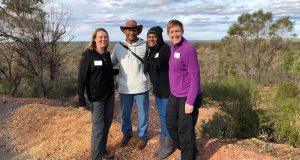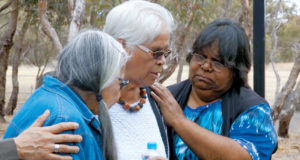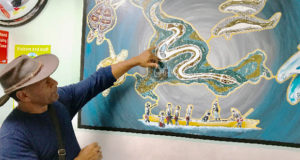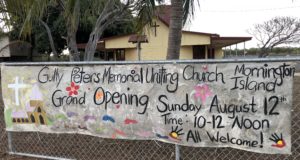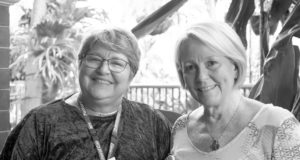The Queensland State General Election will be held on 25 November so before you head to polling booths have you had a chance to consider the key issues at stake and who will best represent your values in parliament? David Weddell and Sue Hutchinson offer these suggestions and questions to get you thinking about your vote.
Approach your local candidates about these important social justice issues. Here are three ways:
- Organise a candidates’ forum
Some Uniting Church congregations host public forums where local candidates come to talk with people in their electorate. Think about hosting a forum in your church. The Uniting Church’s 2016 Federal election guide can help you work through what needs to be done to ensure the forum is a success. You can use the questions below to structure the forum.
- Meet the candidates
As an individual or in a group, you can arrange a meeting with your current local member and other candidates in your electorate. The Uniting Church’s 2016 Federal election guide includes information about how to arrange a meeting with your local MP. It can help you prepare to meet any of your local candidates. The questions below will be helpful in framing your own questions for candidates.
- Write to the leaders and candidates
Write to the leaders of all parties about the policy issues that are a priority for you and your community and about the future you would like to see for Queensland. The questions below will be helpful. If you include local issues, make sure that they are ones for which the state government has some responsibility.
And here are five questions to get you started:
- NDIS: How will you ensure that people who might slip through the cracks of the National Disability Insurance Scheme (NDIS) are able to obtain the care and support they need?
The National Disability Insurance Scheme reforms are ground breaking for Australia and are happening rapidly. We call on all parties in the State election to indicate how they will make sure people are not further disadvantaged as the NDIS continues to roll out through Queensland. We are concerned that some people are missing out. We know that some people with disability get much higher funding for their care than others, based on the quality of their pre-planning support and the level of experience and knowledge of planners. Some people are stuck between health services and the NDIS with neither funding their care. What about people with disability who are not on the radar of local health or community services that can help them access care and support?
- Mental Health: How will you ensure the necessary mental health services are available, especially in rural and remote areas?
People with mental health issues need timely and easy access to acute and chronic mental health services. While there has been some improvement appropriate services are limited. It is of great concern that suicide levels in Australia remain very high with more than seven suicides every day in 2016. For every person who dies by suicide, it is estimated that 30 others attempt to end their lives. Aboriginal and Torres Strait Islander peoples had twice the suicide rate as non-Indigenous Australians in 2016. Lifeline is committed to a whole-of-community approach to preventing suicide where everybody plays a role. You might ask your candidate how they will support mental health services to operate in close conjunction with other services such as housing, employment and education. Families of people with severe mental health issues need to be empowered to help their family member get treatment.
- Indigenous/Youth Justice: How will you work to keep Indigenous young people out of detention?
Young Aboriginal and Torres Strait Islander young people are hugely overrepresented in the youth justice system in Queensland. In 2016-17, on average, only 19 per cent of young people in detention had been sentenced for a crime. The other 81 per cent were on remand; of those, over two thirds were Aboriginal and Torres Strait Islander 10–17 year olds. The Uniting Church Issues Paper – Youth Justice outlines the concerns of the church in relation to youth justice reform. Many children accused of crimes do not have a suitable place to live while waiting for court and sentencing. Why not raise with your candidate the proposal that the state provides home-like supervised bail accommodation for these kids, where they can attend school and receive help with their problems? . The youth justice system needs to look at and address why any children are getting into serious trouble—almost all have been victims of abuse or neglect, been in out-of-home-care, have disability, undiagnosed hearing impairment and speech and language disorders. In fact, very early intervention will certainly help reduce the likelihood of children getting into trouble.
- Pokies: How will you limit the damage poker machines do and prevent Queenslanders becoming problem gamblers?
Whistle blowers from Melbourne’s Crown Casino allege that staff are involved in tampering with poker machines. A problem gambler says he gambled for 48 hours straight and all the casino did was invite him to a VIP room to gamble more. The average problem gambler loses $21,000 a year but some lose far more. UnitingCare Australia acting national director Marin Cowling says that poker machine gambling is by far the biggest contributor to gambling harm. The planned new casino in Brisbane, Queen’s Wharf Casino, has been given a licence for 2500 poker machines in its new Brisbane City Casino. In the 2015-16 financial year the gambling industry donated at least $1,294,501 (declared donations) to Australian political parties in a 60:40 split between two major parties.
- Fossil Fuels: How will you reduce our dependence on fossil fuels and help us move to renewable energy sources.
Since its first public statement in 1977, the Uniting Church has expressed its concern with the wellbeing of the planet for the rights of future generations. Now climate change is already affecting some our neighbouring countries. The threat posed by climate change challenges the way we live in a fundamental way. Despite being the sunshine state, Queensland still only sources seven per cent of energy from renewables (compared to 14 per cent nationally) and a large amount of that comes from household solar. We should have a conversation about electric vehicles and the potential to reduce our reliance on oil. In Norway 30 per cent of cars sold are electric. Here is it around 0.1 per cent.
 JourneyOnline
JourneyOnline


